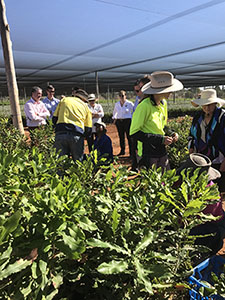On the road for most of this week, I have been thinking about the differences between the environment in which local councils operate and the influences that are brought to bear on our federal political colleagues in Canberra.
Take energy policy for example. In Canberra, the sniping about who is to blame for the nation’s power price and supply woes escalates by the day. Compare this approach with that of local government in Queensland. From the Sunshine Coast to St George to the remote indigenous communities of Cape York, local councils are leading the way in finding more sustainable sources of energy. Rather than try to turn the future of energy into a political argument, these organisations are simply getting on with the job of ensuring their communities can benefit from new and innovative ways to make their businesses run. No blame games here!
These differences in the national and local approaches to policy challenges, I think, are getting starker as time goes on. How else to explain the hue and cry over moves to bring on a parliamentary vote about the future of marriage equality - an issue that has dominated national headlines this week - compared with the ongoing efforts of various frustrated mayors to get Canberra to focus on the hardship their local communities still suffer due to Tropical Cyclone Debbie, four months after the storm hit?
As I mentioned in this space a fortnight ago, the Federal Government’s $29.3 million Category D offer under Natural Disaster Relief and Recovery Arrangements to those communities to help overcome the economic impacts from Cyclone Debbie is woefully inadequate. The councils were seeking $110 million from Canberra and had made detailed submissions supporting that bid, only to get short shrift.

I won’t labour the point about how the Federal Government has a responsibility to encourage the best possible conditions for regional economies to pick themselves up after a natural disaster. But, four months after the cyclone passed, there are likely to be other problems than the economy to worry about, like what impact Debbie is having on the emotional and mental health of residents. Dare I suggest that these things matter as least as much as marriage equality.
Both myself and President Mayor Mark Jamieson have been on the road and in the air for much of the week, visiting councils managing some of the most remote places in Queensland. While I’ve been travelling with Queensland Treasury Corporation senior managers, Mayor Jamieson has spent his time with leaders of Cape York Indigenous councils. All up since the start of this year, Mr Jamieson and/or I have personally visited 44 member councils. Hope you can join both of us next week for another visit, this time to Charters Towers for the 3rd LGAQ Bush Councils Convention.